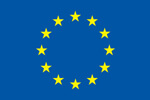The CCRI was the UK partner and took a key role leading one of the Work Packages.
The overall objective of the SOLINSA project was to identify effective and efficient approaches for the support of innovation for sustainable agriculture and rural development.
Working with 17 case studies across Europe, the looked at the role of networks in the transition from intensified conventional agriculture to agriculture built around the principles of sustainability, particularly at the role of networks as drivers of innovation. Due to problems associated with modern agriculture, alternative approaches to food production have emerged which are experimenting with new ideas and solutions. These take the form of networks of people connected together to exchange knowledge.
The project identified a number of such networks, operating in various fields and called these networks LINSA – Learning and Innovation Networks for Sustainable Agriculture. They comprise farmers, food producers, consumers, experts, NGOs, SMEs, as well as official researchers and extensionists who are mutually engaged with common goals for sustainable agriculture and rural development. They cooperate and share resources and can operate outside of, or on the periphery of, mainstream agriculture. They often emerge as bottom-up initiatives. 17 LINSA across Europe were studied by 8 European partners following a transdisciplinary research approach which meant that they worked closely with the LINSA members over the period of the project. More information.
The project concluded that LINSA can play a role in innovation policy and as driving forces for transition in agriculture. LINSA could be considered as policy devices to reveal new innovative problems and solutions; to create significant capacities for local development; and to create positive feedback loops between top down approaches addressing public goals and bottom-up innovation. A key aspect in the support of LINSA is the brokering and facilitation which is needed to create and sustain them. Policy recommendations from SOLINSA have fed into the process of policy formulation at EU level, specifically into the notion of operational groups as identified within the European Innovation Partnership (EIP).
In addition to the CCRI, the eleven partners were the Research Institute of Organic Agriculture (FBL), Switzerland; Pisa University (UNIPI), Italy; Wageningen University (WU), The Netherlands; Swiss Centre for Agricultural and Rural Development (AGRIDEA), Switzerland; Swiss Federal Institute for Technology- ETHZ; Baltic Studies Centre (BSC), Latvia; French Livestock Institute (Institut de l’Elevage) (IEL), France; University Hohenheim (UHOH), Germany; and the Institute of Economics of Hungarian Academy of Science (IEHAS), Hungary. The CCRI staff members involved were Julie Ingram, Nigel Curry, James Kirwan, Damian Maye and Katarina Kubinakova. The project value is £305,705.
Find out more on the SOLINSA website.
- View this project on the CORDIS website
- See final report on the UoG research repository
- Download research summary
Additional information
In September 2013, Dr Julie Ingram, Dr James Kirwan, Dr Damian Maye and Dr Katarina Kubinakova attended the SOLINSA project International Dissemination Workshop and project final meeting in Riga, Latvia.
A final project conference was held in Brussels on 3rd December 2013 to present and discuss the project’s findings. This was a joint conference with the FarmPath project also funded by the Seventh Framework Programme. For more details please consult www.solinsa.net


This project has received funding from the European Union’s Seventh Framework Programme for research, technological development and demonstration under grant agreement no 266306




